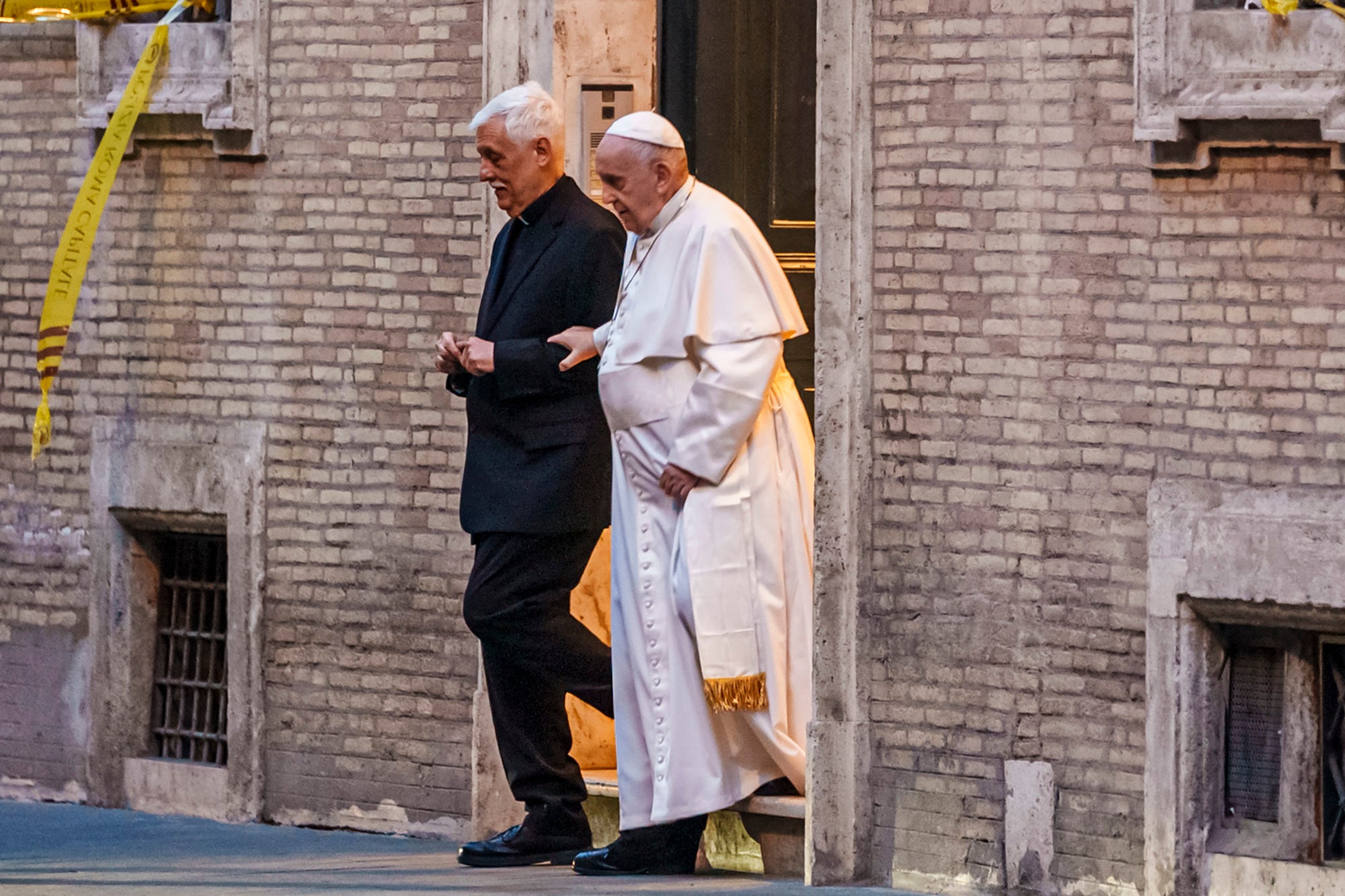Supporter defends expelled Jesuit priest against 'lynching', says abuse claims unproven
The head of a religious art and culture center founded by a disgraced Jesuit priest has come to his defense

Your support helps us to tell the story
From reproductive rights to climate change to Big Tech, The Independent is on the ground when the story is developing. Whether it's investigating the financials of Elon Musk's pro-Trump PAC or producing our latest documentary, 'The A Word', which shines a light on the American women fighting for reproductive rights, we know how important it is to parse out the facts from the messaging.
At such a critical moment in US history, we need reporters on the ground. Your donation allows us to keep sending journalists to speak to both sides of the story.
The Independent is trusted by Americans across the entire political spectrum. And unlike many other quality news outlets, we choose not to lock Americans out of our reporting and analysis with paywalls. We believe quality journalism should be available to everyone, paid for by those who can afford it.
Your support makes all the difference.The head of a religious art and culture center founded by a disgraced Jesuit priest came to his defense Saturday after he was expelled from the Jesuit religious order following allegations of sexual, spiritual and psychological abuse against adult women.
Maria Campatelli, director of the Rome-based Aletti Center, said the claims against the Rev. Marko Ivan Rupnik were “defamatory and unproven” and amounted to a form of mediatic “lynching” against the Slovene priest and his art center.
The Jesuits announced this week that Rupnik had been ordered expelled from the order June 9 because of “stubborn refusal to observe the vow of obedience.” The Jesuits acted after Rupnik had been accused by several women of sexual, spiritual and psychological abuses over a 30-year period.
Until the case exploded publicly late last year, Rupnik had largely escaped punishment, apparently thanks in part to his exalted status in the church and at the Vatican, where even the role of Pope Francis in the case came into question.
Rupnik is one of the most celebrated religious artists in the Catholic Church, whose mosaics decorate churches and basilicas around the world, including at the Vatican. The Aletti center trains artists in his mosaic style to work on the commissions and also runs an editorial house that sells artistic reproductions, coffee table books and calendars.
In a letter on the center’s website Saturday, Campatelli accused Rupnik’s Jesuit superiors of releasing partial information about the case. She said Rupnik had actually requested to leave the order in January and that other Jesuit priests at the Aletti center had made similar requests because of their “overriding distrust of superiors” in their handling of the case.
She accused the Jesuits of essentially concocting the “disobedience” violation, by ordering Rupnik to transfer to a Jesuit community in Lombardy three months after he had requested to leave the order. She said the transfer order thus merely provided the "prerequisite for a disobedience which in fact occurred.” An email request seeking comment from Rupnik’s superior wasn't immediately returned.
The Rupnik scandal exploded in December when Italian blogs and websites reported that consecrated women had complained for years about abuse by him, only to have their claims discredited or covered up by Rupnik’s Jesuit superiors. The case posed a problem for the Vatican and the Jesuits because of suspicions that the charismatic priest received preferential treatment by the Holy See, where a Jesuit pope reigns and Jesuit priests are in top positions at the sex abuse office.
After the allegations erupted, the Jesuits reluctantly admitted Rupnik had been declared excommunicated in 2020 for having committed one of the gravest crimes in church law — using the confessional to absolve a woman with whom he had engaged in sexual activity — but had repented and had the sanction quickly removed.
The next year, Rupnik was accused by nine women of having sexually, psychologically and spiritually abused them in the 1990s at a community he co-founded in Slovenia. Even though the Jesuits recommended a church trial, the Vatican’s sex abuse office refused to waive the statute of limitations and declared the crimes too old to prosecute.
That outcome underscored how the Catholic hierarchy routinely refuses to consider spiritual and sexual abuse of adult women as a crime that must be punished, but rather a mere lapse of priestly chastity that can be forgiven, without considering the trauma it causes victims.
Part of the dilemma was that Rupnik still had plenty of supporters, especially at the Aletti center, as evidence by Campatelli’s vigorous defense of him. The Jesuit investigator who first uncovered the alleged victims’ claims, Bishop Daniele Libanori, has lamented in correspondence that Rupnik’s supporters had tried to discredit the accusers by questioning their mental health.
Campatelli blasted the Jesuits for what she said was their decision to “favor a media campaign based on defamatory and unproven accusations (which exposed Fr. Rupnik and the entire Aletti Center to forms of lynching), as opposed to providing the press with correct information based on acts and documents in their possession, demonstrating a different truth from what was being published.”
She said that Rupnik remained firm in his desire to leave the order and would continue to "live this moment in discernment and ecclesial communion.”